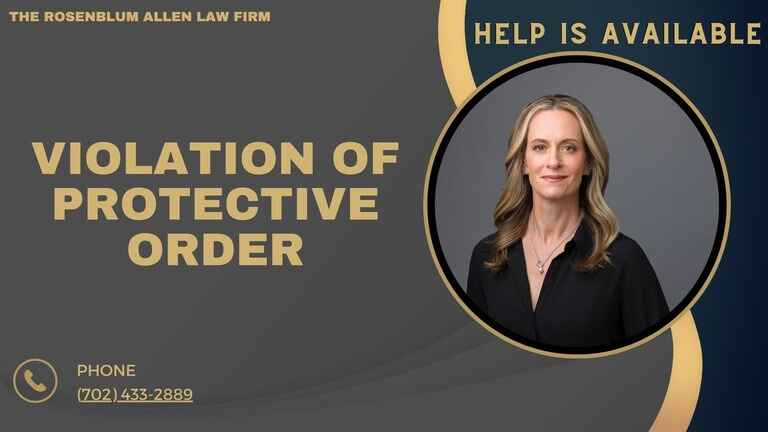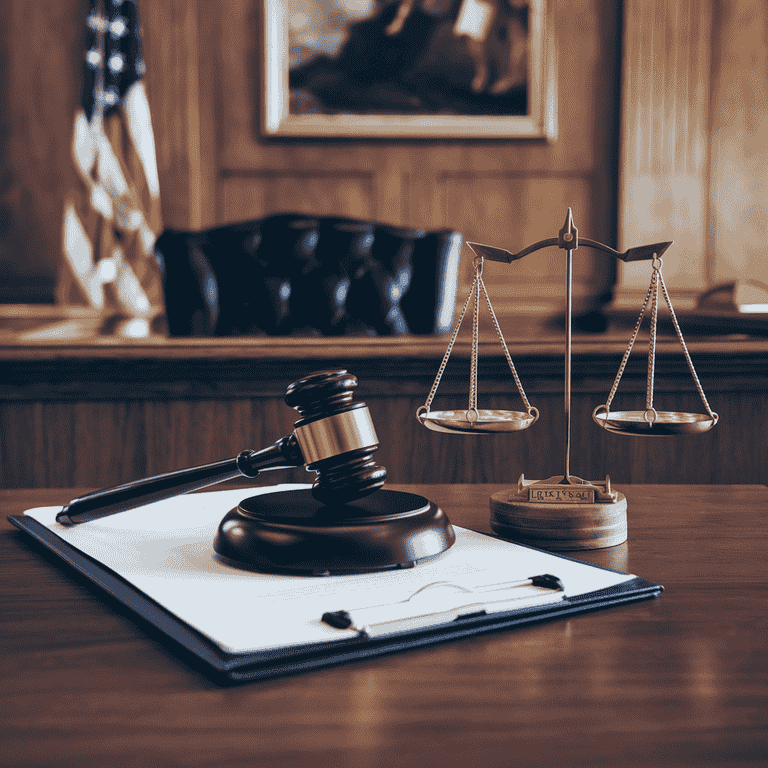Definition of a Protective Order
What is a Protective Order?
A protective order, often called a restraining order, is a legal directive issued by a court to protect an individual from harassment, stalking, or physical harm. This order restricts the behavior of the person named in the order, known as the respondent, to promote the safety of the individual seeking protection, known as the petitioner.

Types of Protective Orders
There are several types of protective orders, each created to address different situations:
- Emergency Protective Orders: Issued in urgent situations, often lasting only a few days, until a full hearing can occur.
- Temporary Protective Orders: Granted for a limited period, typically until the court can review the case in more detail.
- Final Protective Orders: Issued after a court hearing, these can last for months or even years, providing long-term protection.
Purpose of a Protective Order
The main goals of a protective order are to:
- Prevent further contact or harassment from the respondent.
- Provide a legal framework for the petitioner to report violations.
- Enhance the safety and peace of mind for the individual seeking protection.
Legal Consequences of Violating a Protective Order
Criminal Charges
Violating a protective order can lead to serious criminal charges. Depending on the jurisdiction and the specifics of the violation, the respondent may face:
- Misdemeanor Charges: Typically apply to minor violations, like contacting the petitioner unintentionally.
- Felony Charges: More severe violations, such as repeated offenses or threatening behavior, can lead to felony charges.
Civil Penalties
In addition to criminal charges, violators may face civil penalties, which can include:
- Fines: Monetary penalties imposed by the court.
- Compensatory Damages: Payment to the victim for any harm caused by the violation.
Potential Jail Time
A violation of a protective order can lead to jail time. The duration can vary significantly based on the severity of the violation and the respondent’s history.
| Type of Violation | Potential Jail Time |
|---|---|
| Minor violation | Up to 30 days |
| Major violation | 30 days to 6 months |
| Repeated violations | 6 months to several years |
Common Scenarios Leading to Violations
Direct Contact with the Protected Party
One of the most straightforward violations occurs when the respondent directly contacts the petitioner, either in person or through other means such as phone calls, texts, or social media.
Failure to Vacate the Shared Residence
If the protective order requires the respondent to leave a shared residence, staying there can lead to a violation. This situation often happens in domestic abuse cases.
Possession of Firearms
Many protective orders include a provision that prohibits the respondent from possessing firearms. Breaking this condition can result in serious legal consequences.
Social Media Harassment
Even online interactions can lead to violations. If the respondent harasses the petitioner via social media platforms, this behavior can be grounds for legal action.
Additional Violations
Other common violations may include:
- Stalking behaviors, such as following the petitioner.
- Sending gifts or messages that breach the order’s terms.
- Attending places the petitioner frequents, such as their workplace or school.
These violations can complicate the legal landscape, making it essential for all parties involved to understand the terms of the protective order fully.

How to Prove a Violation of Protective Order
Gathering Evidence
Proving a violation of a protective order requires strong evidence. Without it, holding the respondent accountable can be challenging. Here’s how you can build your case:
Documentation and Records
Keep a detailed record of any incidents that may constitute a violation. This documentation can include:
- Dates and Times: When did the violation occur?
- Nature of the Violation: What specifically happened?
- Location: Where did the incident take place?
- Communication Records: Save texts, emails, and any social media interactions.
Having this information organized can significantly strengthen your case.
Witness Statements
If there were witnesses to the violation, ask them to provide statements. Their accounts can support your claims. Consider:
- Friends and Family: People who are aware of the situation.
- Neighbors: Individuals who may have seen or heard the events.
- Coworkers: If the violation occurred at work, coworkers may have relevant information.
Written statements from witnesses can serve as powerful evidence.
Filing a Violation Claim
Once you have gathered enough evidence, the next step is filing a violation claim.
Legal Requirements
Each jurisdiction may have different requirements for filing a violation claim. Generally, you may need to provide:
- Proof of the Protective Order: A copy of the order itself.
- Evidence of the Violation: The documentation you’ve gathered.
- A Written Statement: Detailing the events as they occurred.
Deadlines for Filing
Be aware of any deadlines for filing a violation claim. Delays can hinder your case, so it’s important to act quickly. Check with your local court for specific timeframes.
Defense Strategies Against Violation Claims
Lack of Knowledge of the Order
One possible defense is claiming you were unaware of the protective order. This can occur if you were not properly served or informed about the order’s existence.
Ambiguity in the Order’s Terms
If the language in the protective order is unclear or vague, you may argue that you didn’t understand what was prohibited. Legal terms can be complicated. If the order was not specific, this could work in your favor.
Mistaken Identity or False Allegations
Sometimes, people can be wrongly accused. If you can prove that you were not the individual responsible for the alleged violation, this can be a strong defense. Evidence like alibis or witness statements can help establish your case.
What to Do If You Are Accused of Violating a Protective Order
Consulting with an Attorney
If you are accused of violating a protective order, consult with an attorney immediately. They can guide you on the best course of action and help you understand your rights.
Gathering Evidence to Support Your Defense
Just as the petitioner gathers evidence, you should also compile your own. Keep records of:
- Your Activities: Where you were during the alleged violation.
- Communications: Any relevant texts, emails, or social media messages that support your case.
- Witnesses: Individuals who can testify on your behalf.
Having this information organized will be vital for your defense.
Preparing for Court
If the case goes to court, preparation is key.
- Understand the Charges: Know exactly what you’re being accused of.
- Practice Your Testimony: If you’re testifying, rehearse what you will say.
- Gather Support: Bring witnesses or family members who can help bolster your case.
Feeling prepared can ease anxiety and help you present your case effectively.

Consequences for the Victim of a Violation
Impact on Safety and Well-Being
When a protective order is violated, it can significantly affect the victim’s sense of safety. The violation may lead to increased anxiety, fear, and emotional distress. Understanding these feelings is essential, as they are valid and real.
Options for Reporting Violations
Victims have several avenues to report violations:
- Local Law Enforcement: Contact the police to report any breaches.
- Court System: File a claim with the court to address the violation.
- Support Services: Reach out to local organizations that specialize in helping victims of abuse.
Seeking Additional Legal Protections
If violations continue, victims may seek further legal protections. This can include:
- Modification of the Existing Order: Requesting changes to make the order stricter.
- New Protective Orders: Filing for additional orders if the situation worsens.
Understanding all available options is essential for maintaining safety and well-being.
Resources for Individuals Involved in Protective Order Cases
Navigating the challenges of protective orders can be overwhelming. Fortunately, many resources are available to assist individuals in these situations. Here are some helpful options:
Legal Aid Services
Legal aid organizations provide support to individuals who cannot afford legal representation. They can help you understand your rights and navigate the court process. Look for local legal aid offices that specialize in family law or domestic violence cases.
Domestic Violence Hotlines
Hotlines offer confidential support and resources for those affected by domestic violence. You can reach out to these services for immediate help or guidance on protective orders. Some prominent hotlines include:
- National Domestic Violence Hotline: 1-800-799-SAFE (7233)
- Local Hotlines: Check local resources for state-specific support.
Counseling and Support Groups
Emotional support is vital for individuals dealing with the fallout from protective orders. Counseling services and support groups provide a safe space to share experiences and gain coping strategies. Many organizations offer these services for free or at a low cost.
Community Resources
Local community organizations often provide various resources, such as legal workshops, educational materials, and advocacy services. Check with local nonprofits focused on domestic violence or victim assistance.
Understanding the Process of Modifying or Extending a Protective Order
If circumstances change, you may need to modify or extend your protective order. Here’s how to navigate that process:
Modifying a Protective Order
If you believe the terms of your protective order are not adequately addressing your safety needs, you can request modifications. This might include:
- Changing Provisions: Adjusting terms related to contact, location, or behavior.
- Adding Restrictions: Including new terms to improve your safety.
To modify an order, you generally need to file a motion with the court that issued it. Gather evidence supporting your request to present a strong case.
Extending a Protective Order
Protective orders typically have expiration dates. If you feel you still need protection as the expiration date approaches, consider filing for an extension. The process usually involves:
- Filing a Motion: Submit a request to the court for an extension.
- Providing Evidence: Show proof that the situation that necessitated the order still exists.
Make sure to initiate this process before the order expires to avoid any gaps in protection.

Breaking It Down for You
Protective orders play a significant role in safeguarding individuals from harm. Understanding how to prove a violation, defend against accusations, and access resources can empower you during challenging times. Whether you are seeking assistance or facing accusations, know that support is available.
Stay informed about your rights and available options. Consulting with an attorney can provide invaluable guidance tailored to your situation.
Your safety is important. By taking the right steps, you can navigate this difficult process and work toward a safer future. If you or someone you know needs help, don’t hesitate to reach out to the resources listed above. You are not alone, and there are people ready to support you.

Frequently Asked Questions
What is a protective order?
A protective order is a legal document issued by a court to protect individuals from harassment, abuse, or threats. It sets specific restrictions on the alleged abuser, such as prohibiting contact or requiring them to stay a certain distance away.
How do I know if a protective order has been violated?
A violation occurs when the person named in the protective order does not follow the terms set by the court. Common signs include unwanted contact, showing up at your home or workplace, or failing to comply with restrictions outlined in the order.
What should I do if I suspect a violation?
If you suspect a violation of your protective order, document the incident, including dates, times, and details. Report the violation to law enforcement immediately. They can investigate and take appropriate action.
Can I file criminal charges for a violation of a protective order?
Yes, a violation of a protective order can lead to criminal charges. If law enforcement determines that a violation occurred, they may arrest the individual for contempt of court or other related charges.
What happens if the alleged violator claims the protective order is unjustified?
The alleged violator has the right to contest the protective order. They can file a motion with the court to challenge its validity. A hearing may be scheduled where both parties can present evidence.
How long does a protective order last?
The duration of a protective order varies depending on the court’s ruling and the circumstances of the case. Some orders may be temporary and last for a few weeks, while others can be extended for several months or even years.
Can I change the details of my protective order later?
Yes, you can request modifications to your protective order if your circumstances change. This may include adjusting terms or extending the order, as discussed in the content.
What if I accidentally violate my own protective order?
If you inadvertently violate your own protective order, it’s crucial to consult with an attorney immediately. They can provide guidance on how to address the situation and minimize potential consequences.

Additional Resources for You
Molly Rosenblum, Esq., our lead attorney, extends her expertise beyond just legal representation, creating a broad spectrum of resources to support individuals facing criminal charges. These resources, designed to provide insight, guidance, and reassurance, are easily accessible on the Rosenblum Law website. They cover a range of topics pertinent to criminal law, ensuring you have access to vital information right when you need it. Below is a summary of these invaluable resources:
Criminal Defense Attorneys: A comprehensive overview of criminal defense services offered, emphasizing the firm’s commitment to defending your rights. Explore the resource.
Las Vegas DUI Lawyer: Specialized assistance for those facing DUI charges, offering strategies for defense and information on potential outcomes. Learn more.
Domestic Violence Lawyer Las Vegas: Expert legal support for individuals accused of domestic violence, providing defense tactics and crucial advice. Discover the details.
Drug Possession Lawyer: Guidance for facing drug possession charges, including defense strategies and insights into the legal process. Start navigating your defense.
Sex Crimes Attorney: Specialized defense services for those accused of sex crimes, offering confidential and robust legal representation. Understand your defense options.
CPS Defense Attorney: Assistance for families dealing with CPS (Child Protective Services), including defense against allegations of child abuse and neglect. Learn about CPS defense.
Misdemeanor Lawyer: Legal support for individuals charged with misdemeanors, emphasizing defense strategies and the implications of such charges. Explore misdemeanor defenses.
Juvenile Defense Lawyers: Dedicated services for defending minors in juvenile court, focusing on protecting their future and legal rights. Discover juvenile defense strategies.
Las Vegas Warrant Defense Attorney: Assistance for resolving outstanding warrants and minimizing the legal consequences of such situations. Learn about warrant defense.
Las Vegas Probation Violation Attorney: Guidance for those accused of violating probation, offering strategies to address the violation and mitigate penalties. Understand probation violation defense.
Theft Crime Defense Lawyer: Expert legal advice and defense strategies for individuals facing theft charges, aiming to protect your rights and reputation. Explore theft crime defense.
Kidnapping Lawyers: Specialized legal representation for those accused of kidnapping, focusing on building a strong defense. Learn more about kidnapping defense.
Firearms Lawyer Las Vegas: Legal support for firearms-related charges, providing defense strategies and legal advice to navigate these complex laws. Discover firearms law defense.
Through these resources, Molly Rosenblum, Esq. aims to empower you with the knowledge and support needed to navigate the criminal justice system confidently. We encourage you to utilize these resources to better understand your legal situation and the defense options available to you.

Offsite Resources for You
Nevada Revised Statutes: Chapter 33 – Injunctions; Protection Orders: This provides the legal text of Nevada’s laws on protective orders, which could give you a more in-depth understanding of the legal implications of violating such orders.
Nevada Coalition to End Domestic and Sexual Violence: This organization provides resources and support for victims of domestic and sexual violence, and can provide guidance on dealing with protective order violations.
Legal Aid Center of Southern Nevada – Domestic Violence: This resource provides legal resources and support for individuals involved in domestic violence cases in Southern Nevada, including issues around protective orders.

A Special Message from Our Lead Attorney

Molly Rosenblum
Dear Reader,
I want to personally thank you for taking the time to go through these resources. As a dedicated attorney with years of experience navigating complex legal terrain, I understand how daunting it can be to face these challenges.
Knowledge is power, and being informed is the first step towards a successful legal defense. But nothing replaces a personalized consultation where we can discuss the specifics of your case.
I invite you to schedule a free consultation with one of my team members. Please call (702) 433-2889 at your earliest convenience. I am here to help, and together, we can determine the best path forward for your unique situation.
Warm regards,
Molly Rosenblum, Esq.
The Rosenblum Allen Law Firm



